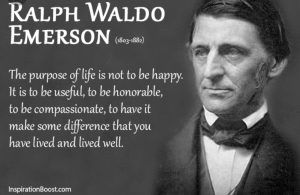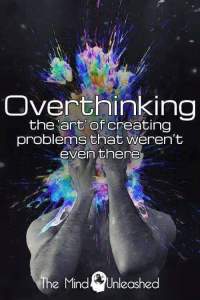Month: August 2019

If we agree, then why are we arguing?
[Locked in different brain patterns of thinking can cause quite a headache if not conscientiously aware enough to stop it in its tracks…]
Communication errors that we sometimes overlook can cause a lot of misfortune, misunderstandings that sometimes were never there to begin with.
Why should 2+2=4 more so than 1+3?
There is no burden of truth nor a right or wrong answer.
This might seem pretty simple right?
Vehicle’s and communication can carry some very similar factors.
Your vehicle may be making some strange noises, rattling or perhaps guzzling gas and you’re wondering what to do? Do you sit with these strange noises? Let it keep rattling till it drives you crazy. Perhaps the gas is burning more than it should and it becomes rather bothersome.
Communication in relationships can be very similar to vehicle. Now you’re probably thinking “what on earth are you talking about?” Maybe one might be intrigued by this scenario and as I continue as not all things appear the same.
Countless times I’ve found myself arguing over something that I may have agree upon but then got hung up on communication barriers, saying the same thing but five different ways.
Catching these moments where communication shouldn’t seem so difficult can be harder than it may seem when you come upon someone whom may not have the same thinking pattern.
Our thought process are unique to our own individuality…
I often reference the word “Brain lock” in my writing because this is what our brains do at times. This doesn’t reflect right nor wrong, it doesn’t reflect intelligence, nor a person’s character. Simply said is we are all a reflection to ourselves, how we perceive things in life, thought patterns that may signify who we are.
Our brain chemistry are hardwire in such divine ways that no one thought pattern is the same, only similarities carry common factors.
Neurotransmitters in our bodies have always been intriguing because even the slightest change in a person’s diet can send one into a tailspin when it comes to changes in mood and our bodies.
We carry more neurotransmitters (at times called your second brain) in our stomach, our digestive track than we do in our brains. Our bodies communicate on various levels from head to toe.
One could have the slightest snarling pain to cause one to become distracted and lose focus. Perhaps a loved one lives with chronic pain because this too may displace communication. Communication is essential to our everyday lives.
I once had the opportunity to sit at a concert next to a woman who had late onset Alzheimer’s and appeared to be unable to communicate. However, something caught my eye and helped me to realize not all things appear to be as what it might seem. There she rested next to me with her feet bobbin to the beat of the song the band was playing.
There are many ways to illustrate communication far and in between…
Just as relationships take time, patience and effort beyond basic understanding. Communication isn’t bias nor a rebound of endless equations that sometimes get us stuck on 2+2 or however 4 may come about.
We are all built on a foundation that requires communication on various levels. No stone can be unturned without willingness to try.
To create a deeper understanding we need to move beyond what we know, find a way to set aside what we know, be willing to listen, ask questions and keep asking until we hear, feel or gradually notice how we may see things from a different perspective.
Communication can be the most daring of truths…
Unlocking the use of our brains can sometimes becomes an habitual state of being, a mode we become accustom to driving on automatic pilot; a comfort zone beyond reasoning, rationalizing and often overlooked.
Whereas at times patterns can wreak havoc in our everyday lives without a second guess as to why things appear to stay the same.
Just as vehicles can become unmanageable; mimic different reasoning’s as we begin to explore the idea of how complex the problem might be. While your vehicle may be making some strange noises, rattling or perhaps guzzling gas and you’re wondering what to do?
One might begin to ponder on the vehicles condition, become fixated, annoyed and agonized endlessly or become clueless beyond recognizing what might otherwise become in some sort reality or some versions of truth.
Now let’s imagine this car is someone significant in your life….
Your brain has been working overtime…
The car is a metaphor…
Or maybe one might still be pondering?…
Whereas there is nothing more divine than versions of truths or doubts within communication in itself…
However the answers may at times become willingness to be open to someone else’s versions of truth…
Because it is often quoted “there are three versions of truth”…

MB

“Catalyst of Unhealthy Guilt”
It is often said that forgiveness is a healing process, healing within itself is for those who seek it. Forgiveness can be the ultimate sacrifice one does to alleviate pains of sorrow. A sorrow so deep at times it can feel unbearable until one can release this pain.
Then there is another kind of forgiveness that we sometimes seek that can drive a wedge between those we love. The “unhealthy guilt” , sometimes called “Irrational guilt”, where we mistakenly take on unhealthy guilt because the pain can feel horrendous. Pain that can be misplaced where one can only assume this to be true if we didn’t recognize the difference.
[In other terms this can be best described as “Irrational guilt” that leads to “doubts about oneself” and “irrational shame” that is displaced. Hallmark features for Anxiety and OCD.]
The catalyst of unhealthy guilt; the straw that broke the camel’s back…
Before we go further one must ask themselves,
· Why am I seeking forgiveness?
· What do I wish to gain when asking for forgiveness?
· What action do I wish to receive from someone else in return?
· When does asking for forgiveness become too much?

The healing of our own emotions can only be done through first healing ourselves.
This is especially true if you have carried the burdens of unhealthy guilt. But many similar emotions we feel can lead to unhealthy guilt if one suffers from grief or loss, anxiety, depression, etc. But grieving a loss does not necessarily mean the death of a love one.
There are many factors in life where one may grieve and most often related to unresolved emotions steaming from circumstances beyond control.
Where we feel this lack of control in our lives may become the hindering compulsive action we seek externally. Like any reactions, unhealthy guilt can feed into the notion that what we are feeling or what we might be saying to ourselves must be true.
The catalyst of an unhealthy guilt can lead to years of chaos in our lives if we do not seek the underline source of our emotions.
Unhealthy guilt leads like an addiction and spreads like wildfire through the trees and plains that have become out of control.

Perhaps there were times one found themselves apologizing over-and-over asking for forgiveness believing past circumstances warranted this to be factual right down to the core of one’s conscience state of mind.
In many stages of unhealthy forgiveness or irrational thinking one may convinces themselves at times to being repetitive in nature to sorrows and notions within thought. Perhaps one may become consumed by the “what ifs” in thoughts of sorrows, unhealthy guilt and/or self-doubts.
This combo is like mixing magnesium sulfate and carbonated beverages. Sooner or later it will explode.
[Most importantly, sometimes thoughts serve no other purpose than to simply be thoughts.]

There comes a time in a person life that one may need to reexamine the situation and ask themselves “why is it that I feel so compelled to seek forgiveness?”
People generally don’t like to live in past tense and at times this pattern of behavior can hinder one’s ability to move forward into a healthier state of mind.

Is it possible for one to misinterpret such compelling words by repeating the same thing to such great overabundance?
Absolutely, this can happen for several different reasons. Communication can drive a wedge when we misunderstand our own thoughts process. At times repeating actions or obsessively thinking, ruminating or having pressurized thinking to reassure patterns of behavior.
Obsessive or irrational thoughts/actions can drive a person away like salt on open wounds; the instability of irrational guilt’s, leaving feelings of hopeless about situations.
This kind of repetitive behavior often creates problems by stirring up emotions that may carry very little value because why else would we ruminate such things that make us miserable.

However just like an addiction, unhealthy guilt can become an unhealthy behavior. There have been many discoveries through science and psychology where proven the pathways to our brains can change when we change our actions. This is especially true to changing behaviors. Like any addiction or habit the changes start within.
As many addictions and mental health situations, they are not always circumstantial, nor do them fade without changes we make within ourselves but rather things may become much more manageable as time passes.
But only through time can we see these changes as they accrue.
Most often great changes can take years to accomplish as we begin recognize what it is we are trying to change. The same is true for unhealthy guilt.

You cannot make up for lost time, nor can a person change what has already been done. The only thing we have in our lives where we can maintain control are our own emotions, thoughts and our own actions. Healthier choices will lead us down a path of willingness to maintain control of our destiny.
It’s those choices we make now, currently in plain view that where we may come to embrace our future. Like any kind of addiction, unhealthy guilt comes with emotional pain; where there is uncertainty there is fear and fear can be a powerful motivator.
Time doesn’t stand still for anyone and neither should you. When we learn to let go unhealthy, irrational guilt, the chain may become undone and one may no longer be hindered by the inability to move forward but rather we gain insight.
Marsha Beede

Should Federal or State Prisoners with Dementia or Other Chronic and Debilitating Conditions Get a Pass Because They’re Old?
[When I read this article it reminded me of my times served best working in memory centers, adults with developmental disabilities and I strongly agree with the Osborne Association. Continue to read to learn more…]
By 2030, people over 55 will make up a third of the U.S. prison population; and exploding numbers of seniors in prison and rising costs to care for them are putting the country’s criminal justice system “at risk of collapse,” according to the report by the Osborne Association, a policy advocacy and direct-service organization dedicated to transforming the criminal justice system in New York City.
Elizabeth Gaynes CEO of the Osborne Association
[“Increasing rates of elder incarceration have reached crisis-level and put unsustainable pressure on the justice system as a whole.”]
The crisis, she said, is exacerbated by the fact that prisons were never designed to be geriatric wards for individuals with a whole host of age-related issues— from arthritic knees, to difficulty bathing, to the extensive medical attention required for illnesses like strokes, emphysema, Alzheimer’s and cancer. “Incarcerated individuals experience a mental and physical decline at a much faster rate than people outside of prison. Research shows that 40% of incarcerated older people are diagnosed with cognitive impairment. For some, dementia becomes so pronounced that they cannot even remember why they are incarcerated in the first place.”





You must be logged in to post a comment.